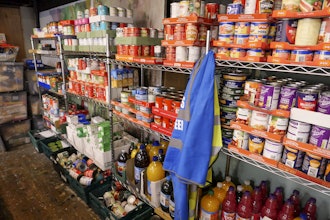
Food and beverage processors worldwide are making commitments to achieve net zero greenhouse gas emissions, conserve water, and use natural resources more efficiently. Technology solutions providers serve a unique role as they drive the development of long-term solutions for their own customers and the food and beverage industry as a whole. Key strategies to achieve sustainable outcomes can include:
- Reducing Food Waste & Increasing Yield. Food waste contributes to two of our biggest global challenges — hunger and climate change. Today, nearly 690 million people are hungry around the world — 10 million more than in 2020. Being mindful of the needed resources to better ensure food security for all is a great responsibility, and technology innovation is necessary to find new solutions to reduce food waste. As the single largest category of waste in municipal landfills, food waste also emits methane, a powerful GHG contributor to climate change. It is estimated that food waste was responsible for eight percent to 10 percent of global emissions between 2010 and 2016. Technology solutions should be designed to make the most out of natural resources. For example, instead of just extracting the juice from citrus fruits, technology should also process the valuable by-products, including the peel, oils, and pulp so that customers can recover value out of more of the raw ingredients.
- Prolonging Shelf Life. Disposing of food that has gone bad is all too common. In fact, the average U.S. household wastes more than 30 percent of its food, equating to more than $1,800 in needless cost per household in addition to the negative environmental impacts created. It’s important for food processors to invest in solutions that extend the shelf life of food to make it easier for people to reduce food waste and eat healthier. These solutions include High-Pressure Processing (HPP) options that reduce the need for artificial preservatives while extending shelf life and improving food safety. Processors should also consider tray sealing packaging solutions that provide a variety of shelf-life extension techniques. Snap-packs allow consumers to easily access smaller portions of a product while keeping the remainder sealed for future consumption. Similarly, specially engineered perforated film allows the respiration of certain types of produce, preventing premature ripening and decay.
- Commercializing Plant-Based Alternatives. The plant-based market is growing rapidly. In fact, plant-based diets have increased 300 percent for Americans in the last 15 years, and plant-based retail sales had an overall growth rate of 27 percent in one year from 2019 to 2020. Many technology solutions work equally well for plant-based products as they do for meat or dairy products, which can help processors keep up with growing demand. Processors and tech providers can work together to develop customized solutions to help scale the production of milk alternatives, plant-based proteins, and more.
- Extend Product Lifespan. Industrial machinery uses large quantities of metals and other materials. It is important for tech solutions providers to prioritize durability and modularity during the design phase to ensure that customers can make the most of each purchase for years to come as high-quality machines can stand up to the rigors of long-running production lines. For example, to extend the longevity of equipment, and support the transition toward a circular economy, JBT’s Proseal launched an initiative called ‘No Good Machine Left Behind.’ With this program, it proactively upgrades older machines that are operating at customer sites throughout the world, allowing customers to benefit from Proseal’s latest performance enhancements and prevent machine obsolescence.
Today, sustainable solutions are an integral part of profitable growth strategies. Innovative technologies that address the social and environmental impact of food manufacturing to reduce waste, water consumption and electricity will continue to be a source of growth and transform the industry for years to come.
Angie Sobkowiak is the Environmental and Social Impact Leader at JBT Corporation. Learn more about JBT’s sustainability commitments and ESG efforts in the company’s first comprehensive ESG report here.






















